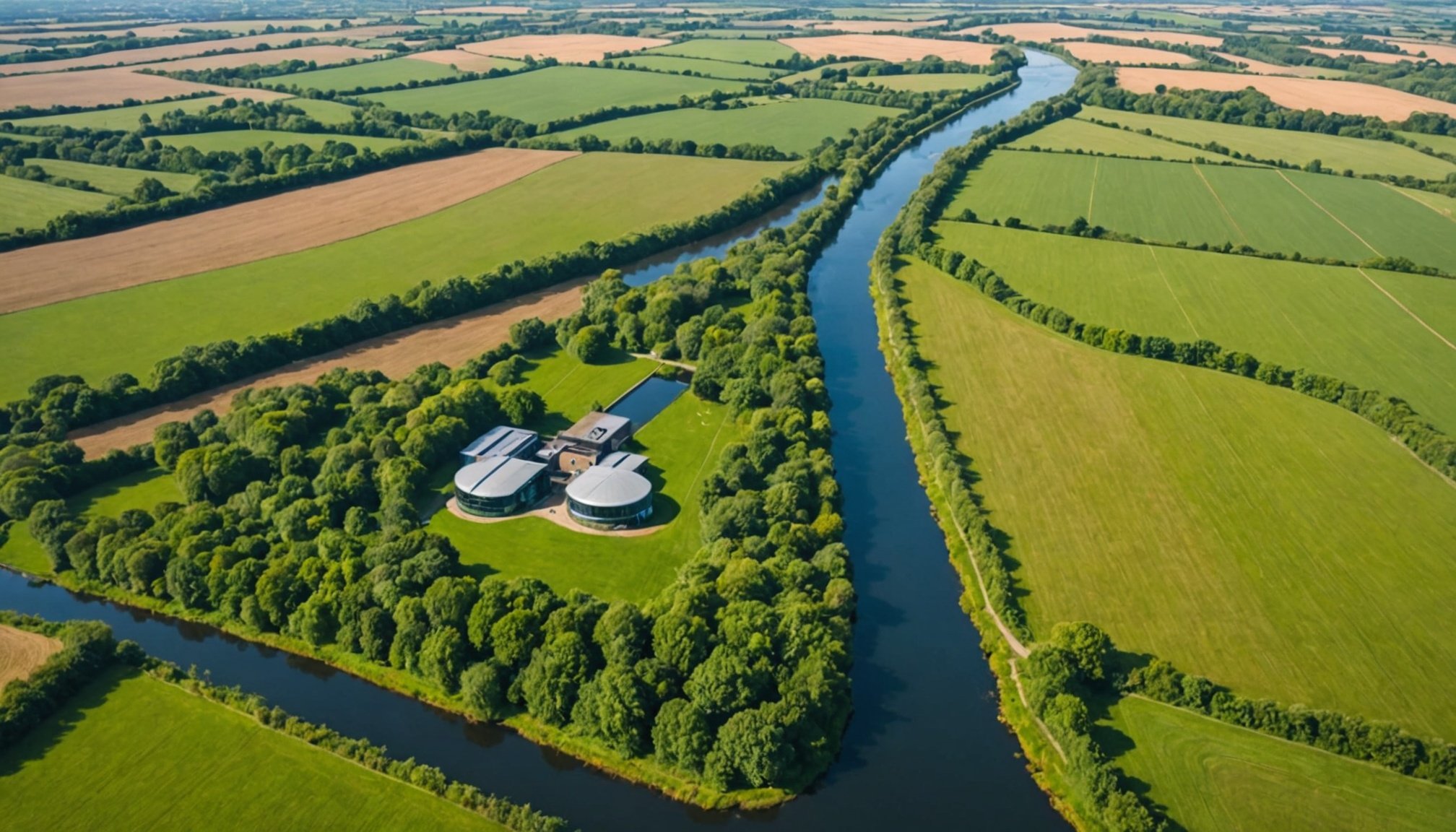Overview of AI in Water Management
The integration of AI in Water Management signifies a pivotal change in how resources are monitored and utilized. By harnessing complex algorithms, AI systems enhance water management by improving water efficiency. These sophisticated models guide decision-makers towards better resource allocation and consumption strategies.
Technological advancements in AI, from machine learning to real-time data analytics, have opened new avenues for the water sector. Predictive analytics combined with Internet of Things (IoT) sensors enable early detection of anomalies, thereby preempting crises and minimizing waste. This is vital in combatting water scarcity, a growing concern in many parts of the world.
Also read : Harnessing AI for Transformational Efficiency and Innovation in UK Supply Chain Management
The importance of AI cannot be overstated. Through enhanced data collection and analysis, AI facilitates more efficient water management while addressing issues of sustainability. Optimizing processes through these technologies ensures that precious resources are preserved for future generations. Further, AI’s ability to predict and react to potential issues can drastically reduce operating costs, making it an effective tool in water management. While the journey is ongoing, the promise of AI in this field holds immense potential for global environmental stability.
Case Studies of AI Implementation in the UK
The UK’s innovative approach to integrating AI in water management systems is exemplified in various real-world examples. These implementations serve as insightful case studies, shedding light on how AI applications are enhancing operational efficiency in the UK water sector.
In parallel : Boosting UK Fintech Startups: Leveraging AI Breakthroughs for a Competitive Advantage
Smart Water Metering
Current smart metering technologies in the UK highlight significant potential to revolutionize water conservation. These devices offer real-time data collection, enabled by AI, to track water usage patterns accurately. Pilot programs have demonstrated a notable impact on consumer behavior, leading to heightened awareness and more efficient water use. The ability to monitor consumption so closely encourages proactive water conservation measures among residents, contributing to broader sustainability goals.
Predictive Analytics for Water Distribution
In the city of Bristol, predictive analytics tools are paving the way for smarter water distribution. By analyzing historical and real-time data, these tools help utility companies anticipate demand fluctuations and optimize distribution networks. The outcomes speak volumes: increased efficiency, cost savings, and a more reliable supply chain. Such advancements underscore the transformative potential of AI in the water sector.
AI for Leak Detection and Management
Sophisticated technologies employed for real-time leak detection have succeeded in reducing water loss in places like London. These projects demonstrate the long-term benefits of AI, not only in managing finite resources but also in bolstering environmental sustainability. An AI-driven approach results in robust management strategies, safeguarding water resources for the future.
Benefits of AI in Water Management Systems
The Benefits of AI in water management systems are manifold, notably in enhancing operational efficiency. Organizations implementing AI technologies witness significant reductions in costs, largely through streamlined processes and optimal resource allocation. AI’s capacity for data analysis and forecasting enables improved decision-making, allowing utilities to anticipate and react to changes with precision. This foresight can lead to better-managed supply chains and reduced wastage.
AI also plays a pivotal role in contributing to sustainability goals. By accurately predicting demand and optimizing distribution, AI supports the sustainable use of water, a finite resource crucial for life. This is especially vital in regions facing water scarcity. The environmental benefits extend further through AI’s ability to detect and mitigate issues like leaks, thus preserving resources and ensuring environmental preservation.
Moreover, AI’s integration opens doors to enhanced insights and actionable intelligence that drive informed decision-making. The harmonious blend of technology and environmental stewardship through AI marks a significant step toward a sustainable future in water management. The impact of these advancements makes AI an invaluable tool in addressing global water challenges.
Challenges and Considerations
As the integration of AI in Water Management progresses, several challenges and considerations emerge. The first hurdle is the technological barriers that arise during implementation. Many organisations face difficulties related to existing infrastructure, which can significantly hinder the deployment of AI systems. Adequate technological support, such as IoT-friendly systems, is essential for effective AI utilisation.
Another challenge is related to workforce dynamics, where an evident skills gap exists. Training the workforce to handle advanced technologies is crucial. Encouraging digital literacy and offering continuous training programs can mitigate this challenge.
Moreover, data privacy and security concerns are pivotal. AI systems often process vast amounts of sensitive data, raising concerns about misuse or breaches. Regulatory frameworks play a critical role in mitigating these risks. Ensuring compliance with data protection laws and following best practices, such as data anonymisation and encryption, are effective strategies for safeguarding sensitive information.
Lastly, the economic and policy implications must be considered. Significant investment is often required for AI system implementation. Carefully crafted policies and active stakeholder engagement are essential to streamline processes and facilitate AI adoption.
Future Trends in AI and Water Management
As we look toward the future of water management, emerging technologies such as machine learning and IoT are set to revolutionize the sector. These innovations promise to further improve water efficiency by enhancing prediction models and real-time monitoring capabilities.
Machine learning algorithms will offer improved accuracy in forecasting water consumption and detecting leaks. This predictive precision will be a game-changer, minimizing wastage and ensuring optimal use of resources. The integration of IoT-enabled devices will provide continuous data flow, enhancing decision-making processes and offering new insights into system performance.
By 2030, AI is predicted to play a profound role in not only automating processes but also in facilitating smarter, more adaptive water management systems. This evolution is crucial as the demand for better resource management continues to grow.
The importance of ongoing research and innovation cannot be overstressed. Continued advancements in AI-driven water management are vital to coping with future challenges, including climatic changes and population growth. Stakeholder engagement and collaboration will remain crucial for sustaining momentum and achieving transformative outcomes in the sector.
